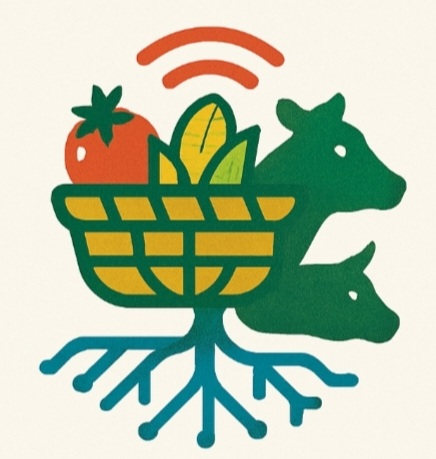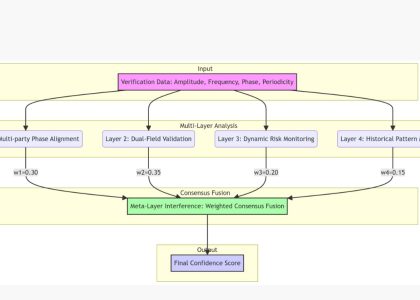The Agri-Supply Chain Gap
Here we go again…Agri -Supply Chain Gaps and Ecosystem Impact
Just so that we are on the same page, last year, MPs demanded special audits on fake fertilizer distribution and KEBS had accused a Kenyan-based regional fertilizer merchant of fraud after it emerged the firm supplied substandard fertilizers. Are we together now?
Also, before we forget ,the 564.1 metric tonnes of raw fertilizer donated by Russia, which went missing before reaching the Port of Mombasa, has not been reported as found based on available information. Or was it accounted for?
Auditor General Nancy Gathungu’s report, released on June 30, 2024, highlighted that the National Cereals and Produce Board (NCPB) received 33,835.9 metric tonnes out of the expected 34,400 metric tonnes, indicating a shortfall of 564.1 metric tonnes. The cause of this shortfall remains unexplained, with suspicions of possible theft raised in various reports. The Kenyan government, through Agriculture Principal Secretary Paul Ronoh, claimed the missing amount (1.6% of the total shipment) was within acceptable losses due to temperature fluctuations and handling during shipment. However, no official confirmation exists that the missing fertilizer was located or recovered.
Are we seeing the possible Agri -Supply Chain Gaps? Should we continue?
The 33,835 metric tonnes of fertilizer raw materials, which were locally blended into over 2 million subsidized 50kg bags for maize, tea, and rice, saving farmers Ksh 2 billion. Bags were to be sold at Ksh. 7000 but were now being sold between Ksh.2,500 and Ksh 4,200. Additionally, Algeria donated 16,000MT of urea, producing 561,000 bags of top-dressing fertilizer, saving farmers another Ksh 729 million under the subsidy programme. And Kenyans were assured that the country has enough maize to last 23.5 months.
The recent audit report by Auditor General Nancy Gathungu, covering the fiscal year ending June 30, 2024, has exposed alarming irregularities within Kenya’s National Cereals and Produce Board (NCPB) and the Ksh.31.5 billion fertilizer subsidy program. These findings reveal significant agri-supply chain gaps and have far-reaching implications for the entire agricultural ecosystem.
Key Audit Findings and Agri-Supply Chain Gap in Kenya:
1.Fake Firms and Suppliers:
•Finding:
The audit uncovered payments made to non-existent or fake firms for the supply of fertilizer. For instance, NCPB reportedly paid Ksh240.4 million to Fifty-One Capital African Diatomite Industries for organic fertilizer, a firm whose legitimacy is now under question.
•Agri-Supply Chain Gap in Kenya:
This points to a severe lack of due diligence and verification in the supplier onboarding process. It indicates weak procurement controls and a vulnerability to fraudulent entities entering the supply chain. The absence of robust vendor vetting allows shell companies to siphon off public funds.
2.Unsafe and Substandard Inputs:
•Finding: The audit revealed the distribution of unsafe and substandard fertilizer. Previous reports also highlighted instances of fake fertilizer (quarry dirt in misleadingly labeled bags) being distributed through the national subsidy program.
Agri-Supply Chain Gap in Kenya:
This highlights critical failures in quality control and inspection at various stages of the supply chain, from sourcing to distribution. The lack of rigorous testing and verification of fertilizer quality before and during distribution means that harmful or ineffective products reach farmers, undermining the very purpose of the subsidy program. It also suggests potential collusion or negligence in ensuring product standards.
1.Lost Billions in Fertilizer Subsidies and Missing Stock:
•Finding: The audit points to billions lost within the subsidy program, including missing stock. While specific figures for the total loss are still emerging, the payment to fake firms and the distribution of substandard products directly contribute to these losses.
•Agri-Supply Chain Gapin Kenya: This indicates systemic issues in inventory management, financial oversight, and accountability. The inability to track and account for subsidized fertilizer suggests leakages, diversion, and potential embezzlement within the distribution network. It also implies a lack of transparency and traceability, making it difficult to pinpoint where the losses occurred and who is responsible.
Impact on the Entire Agricultural Ecosystem:
These agri-supply chain gaps n Kenya have profound and detrimental effects across the entire agricultural ecosystem in Kenya:
1.Farmers (Small and Large Scale):
•Reduced Productivity and Food Security: Farmers who receive fake or unsafe fertilizer experience reduced crop yields, leading to significant financial losses and threatening household food security. This directly undermines the government’s efforts to boost agricultural production and achieve food self-sufficiency.
•Erosion of Trust: The widespread fraud erodes farmers’ trust in government programs and institutions like NCPB, making them hesitant to participate in future initiatives. This can hinder the adoption of beneficial agricultural practices and technologies.
•Financial Burden: Farmers not only lose money on ineffective inputs but may also incur additional costs trying to rectify soil deficiencies or manage damaged crops.
2.Agricultural Supply Chain Integrity:
•Distortion of Markets: The influx of substandard products and fraudulent activities distorts the market for legitimate fertilizer suppliers, creating an uneven playing field and discouraging quality investments.
•Reputational Damage: The scandal damages the reputation of Kenya’s agricultural sector on both local and international fronts, potentially affecting trade relationships and investment.
•Increased Risk for Legitimate Businesses: Honest businesses operating within the supply chain face increased risks due to unfair competition from fraudulent entities and a general atmosphere of distrust.
3.Government and Policy:
•Undermining Policy Goals: The losses and inefficiencies directly undermine the objectives of the fertilizer subsidy program.
•Misallocation of Public Funds: Billions of shillings intended to support farmers are lost to corruption and fraud, representing a significant misallocation of public resources that could have been used for other critical development initiatives.
•Accountability Crisis: The audit findings highlight a severe lack of accountability and oversight within government agencies responsible for implementing agricultural programs.
4.Environmental Impact:
•Soil Degradation: The use of unsafe and inappropriate inputs can lead to long-term soil degradation, affecting soil health, biodiversity, and overall agricultural sustainability. This can have cascading effects on the environment, including water pollution and ecosystem imbalance.
Conclusion:
The NCPB audit uncovers a deeply troubling situation that extends beyond financial mismanagement. It exposes critical vulnerabilities in the agricultural supply chain, from procurement to distribution, and highlights the urgent need for comprehensive reforms. Addressing these gaps is crucial not only for safeguarding public funds but, more importantly, for ensuring the productivity, profitability, and sustainability of Kenya’s agricultural sector and the food security of its citizens.
What solutions are currently underway to soften these agri-supply chain gap issues? What are the short and long- term fixes? These are the issues we need to collaborate and tackle. Comment
Join our Agri-Supply Chan Ecosystem & Network Whatsapp group





